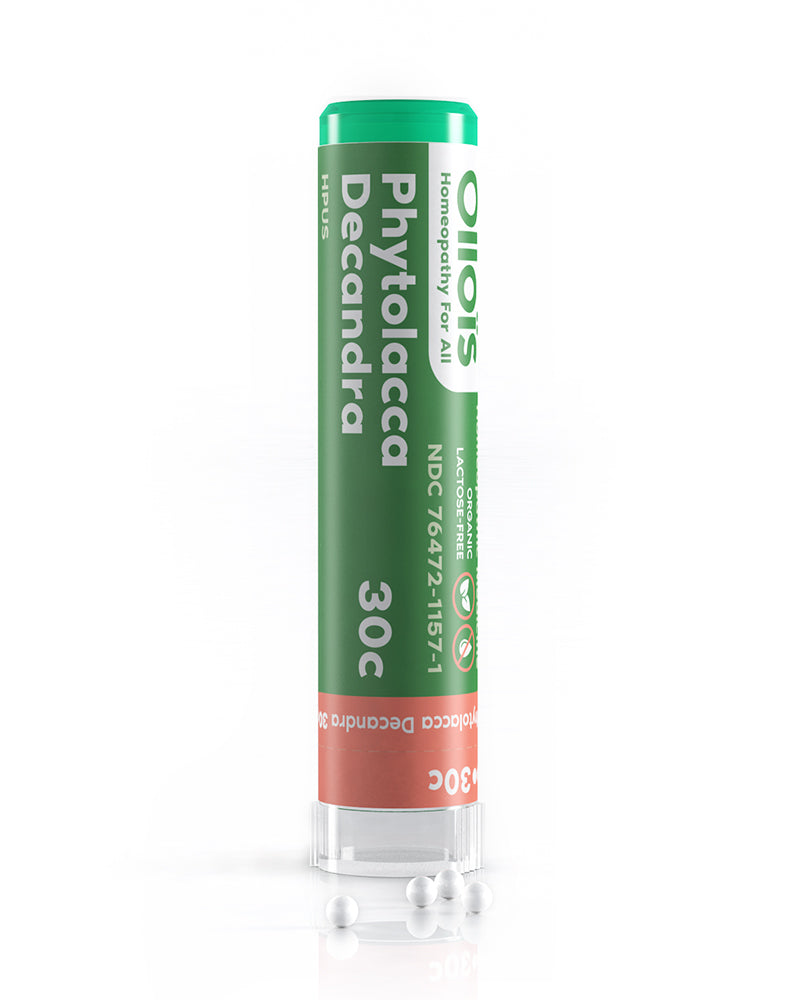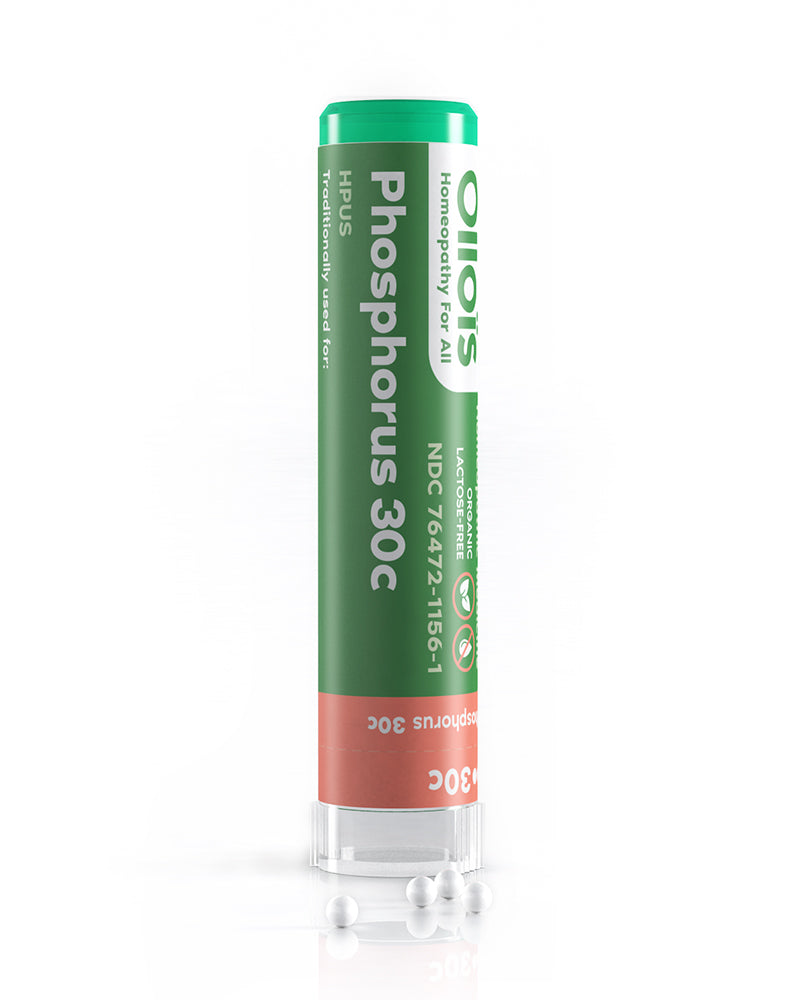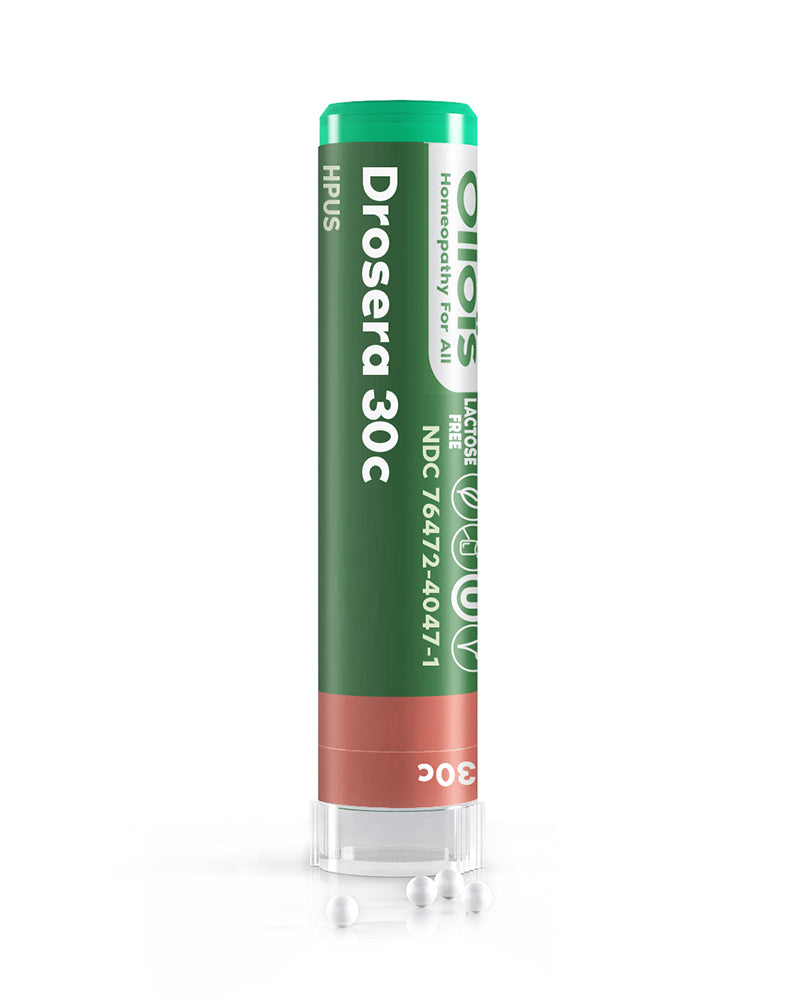Collection: Cold Sores
Phytolacca Decandra
Phosphorus
Drosera
Cold sores are blister-like lesions that form around the outside of the mouth. They are caused by a viral infection – usually Herpes Simplex virus type 1. In the early stages, often before the cold sore is visible, you may feel pain or tingling in and around the area. Shortly after, a fluid-filled blister will emerge.
Aside from the soreness, one of the main irritants of a cold sore is how long they can hang around. Unlike other sores, such as canker sores or an average blister, these can last more than a week. And once they’ve run their course, the blisters themselves may not completely heal for a few weeks.
The first thing most cold-sore sufferers think about when they notice one beginning is the unsightly nature of them. The size of the sore can vary from a contained blister to a more sprawling sore that can resemble a rash. It’s quite understandable, especially among younger teens, that one would be self-conscious about their appearance when a sore has emerged.
Cold sores are also contagious. They are a virus and can spread through personal contact. They are most contagious when the blisters and fluid are present, but it is possible to spread the infection prior to the blister being visible. Caution should be taken to avoid skin contact and kissing when the blisters are present. Even sharing items that may have come in contact with them, such as towels, cups, or utensils, should be avoided. And keeping hands washed will help prevent cold sores from being passed through touch.
Given the difficulties and discomfort associated with this, finding relief of any kind becomes any sufferers top priority. Fortunately, there are homeopathic remedies for cold sores. A product such as Rhus-Toxicodendron-30c, available from Olloïs, can help soothe any of the irritation and hasten the healing process.
Discover more 100% natural, organic homeopathic remedies available from Olloïs. Browse the product page to see what treatments are available for your symptoms.
FAQ
What is Homeopathy?
Homeopathy is a medical practice based upon the body's ability to heal itself, and the principle that "like cures like" or the Law of Similars: that is, if a natural substance causes a symptom in a healthy person, a very small amount of the same substance may help relieve symptoms of the illness. Homeopathic medicines enhance the body's normal healing and self-regulatory process.
How do I take homeopathic medicines?
Homeopathic medicated pellets contain only a little of an active ingredient for treatment of disease. These are known as highly diluted or "potentiated" substances. Homeopathic medicines should be placed under the tongue of adults and children or in the cheek of an infant, where they will dissolve. It is preferable to take homeopathic medicines apart from meals. The dosage is not related to the weight and age of the patient. In general, dissolve 5 pellets 3 times a day until symptoms are relieved or as directed by your health Care Professional.
Is there evidence that Homeopathy works?
There are literally hundreds of high quality, published basic sciences, pre-clinical and clinical studies showing that homeopathy works. These studies have been published in respected journals like Lancet, Pediatrics, Rheumatology, and Annals of Internal Medicine, among others.
A great source of high quality research in homeopathy at an
international level is the Homeopathic Research Institute in the U.K. headed by physicist, Dr Alexander Tournier. Click below to learn more about their studies and rigorous methods.
Is Homeopathy regulated?
The U.S. Congress passed a law in 1938 declaring that homeopathic remedies are to be regulated by the U.S. Food and Drug Administration (FDA) in the same manner as nonprescription, over the counter (OTC) drugs.
Is Homeopathy new?
The Law of Similars has been known since at least the time of Hippocrates (ca. 400 B.C.), but it was doctor and chemist Samuel Hahnemann who fully stated the ideas of homeopathy in the early 1800's in Germany. He discovered the truth of the Law of Similars by testing small doses of medicine on himself. Although there is wider acceptance of homeopathy in countries such as France, Germany, Mexico, Argentina, India and Great Britain, we have seen a greater interest in homeopathic medicine in the USA recently. In fact, the family doctor to England's Queen Elizabeth is a homeopathic physician.
What is the difference between the dilutions?
30C dilutions are traditionally used in Homeopathy to address general and chronic symptoms.
200CK dilutions are usually recommended by healthcare practitioners when there is an emotional component associated with physical symptoms.
Which base ingredient do you use for your pellets?
Our pellets are made from Organic Beet Sucrose exclusively grown in Europe. We then impregnate the pellets with the homeopathic dilution of the remedy.
How to open our tubes?
Are Olloïs remedies HAS/FSA eligible?
Yes, Olloïs homeopathic remedies are eligible.

 Respiratory
Respiratory
 Stress & Sleep
Stress & Sleep


